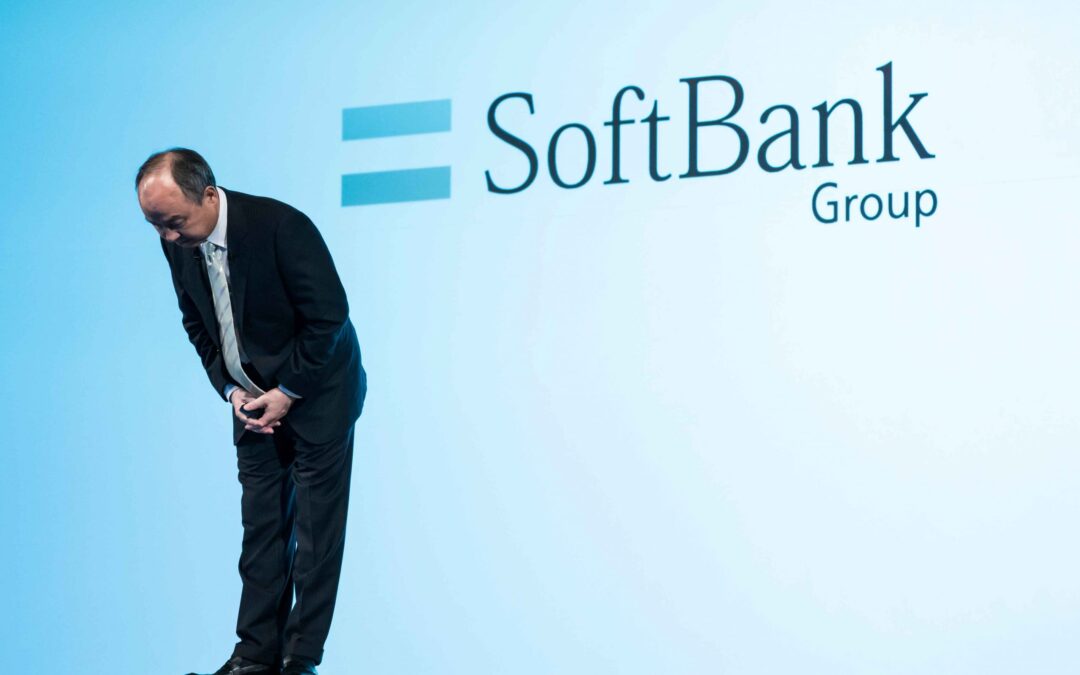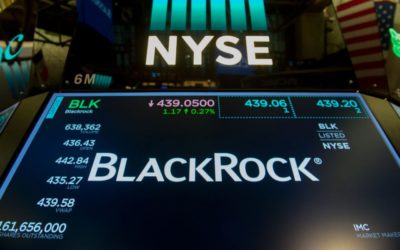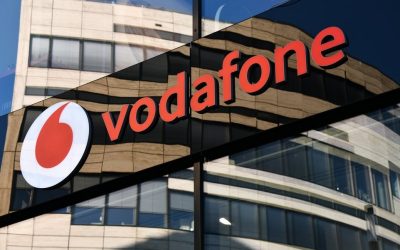Technology investor SoftBank Group recorded a profit of nearly $12bn in the April-June quarter as gains from disposing of former unit Sprint helped it bounce back from the worst year in its history.
Improved performance at SoftBank’s $100bn Vision Fund, the world’s largest tech-investment pool, also drove the turnaround after SoftBank suffered a loss of $9bn in the year ended 31 March.
The company said it posted an investment gain of ¥296.6 billion ($2.8bn) at the Vision Fund in the latest quarter. That is its first such gain in a year.
SoftBank has lifted its share price and bolstered its balance sheet this year after taking a pummeling earlier from investment missteps and the coronavirus pandemic.
Tuesday’s results suggested its comeback plan is working for now — but at a big price. SoftBank has scaled back its investing ambitions and put big chunks of some of its most valuable assets on the block to raise cash and fund stock and debt buybacks.
Among those assets are stakes in Chinese e-commerce giant Alibaba Group Holding, Japanese mobile-phone unit SoftBank and T-Mobile US, SoftBank said Tuesday it had sold or monetised ¥4.3 trillion ($41bn) of those assets as of 3 August.
Sprint, which had been controlled by SoftBank, was taken over by T-Mobile on 1 April. SoftBank received shares in the merged company but has now sold about two-thirds of them.
In the April-June quarter, SoftBank said it recorded a gain relating to loss of control of Sprint of ¥736.4 billion and a gain relating to sales of T-Mobile shares of ¥421.9 billion. Together those accounted for a big chunk of the group’s net profit of ¥1.26 trillion.
Much of the money gained from those share sales is already earmarked for repurchases of SoftBank’s stock and debt. It has so far executed about two-fifths of some $23bn in share buybacks proposed this year and more than $1.5bn in debt redemptions.
SoftBank is also considering a sale of part or all of UK chip designer Arm, one of the company’s biggest and most strategically important investments, chief executive Masayoshi Son said on 11 August, confirming a report in The Wall Street Journal. Son said another option was a public offering of Arm’s shares in 2023.
At the heart of SoftBank’s troubles were missteps at the Vision Fund, into which the company has been pouring money and resources for the past three years under the guidance of Son. Some of the fund’s high-profile bets — such as US office-share company WeWork — started to sour last year, leading to billions of dollars in write-downs.
The start of the coronavirus pandemic this year added to the company’s woes, pummeling many of the Vision Fund’s startups further and pushing SoftBank’s share price to a low of ¥2,687 ($25.37) in mid-March. The company drastically shrank plans for a second multibillion-dollar Vision Fund.
Since then, SoftBank has pleased investors by starting the share buyback program. It pledged to redeem debt and store up cash, and it cleaned house at the Vision Fund by writing down valuations there by billions of dollars.
Stock markets have recovered and SoftBank’s own shares have more than doubled from their low of the year. On the Tokyo Stock Exchange, SoftBank shares closed Tuesday down 2.45% at ¥6,361. The earnings announcement came after the market closed.
Source: Wall Street Journal
By Phred Dvorak
Can’t stop reading? Read more
Fund Friday: Top fundraising news in private equity
Fund Friday: Top fundraising news in private equity BlackRock has paused fundraising for its...
JTC rebuffs £2bn Permira bid as shares surge to record high
JTC rebuffs £2bn Permira bid as shares surge to record high JTC Plc has rebuffed a preliminary...
Telefónica weighs bid for Vodafone Spain after Zegona’s €5bn acquisition
Telefónica weighs bid for Vodafone Spain after Zegona’s €5bn acquisition Telefónica is considering...




